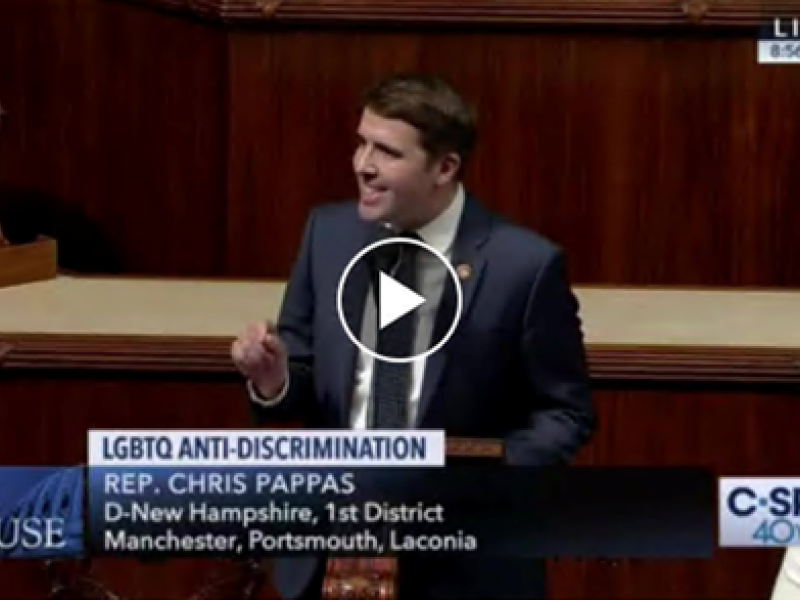Congressman Pappas Applauds Bipartisan Passage of Equality Act After Rebutting Efforts to Delay Historic Legislation on the House Floor

Washington, D.C. - Today, Congressman Chris Pappas, Co-Chair of the LGBTQ Equality Caucus and the first LGBTQ member of Congress from New Hampshire, applauded passage of the historic bipartisan Equality Act. Prior to final passage, Congressman Pappas spoke on the House floor against a last-minute Republican procedural motion while calling on his colleagues to join him on the right side of history and support protections for all Americans.
This landmark legislation amends existing civil right statutes to provide LGBTQ Americans with the same protections as all other Americans enjoy in key areas of life, including employment, housing, credit, public services, and education. The Equality Act has overwhelming public support with more than 7 in 10 Americans supporting it.
"Throughout American history, our country has been strengthened by recognizing our diversity and guaranteeing greater equality under the law," said Congressman Pappas. "Today's vote to end legal discrimination in housing, employment, and public services and spaces will steer our nation closer to the full realization of its founding principles—and the notion that we are all created equal.
"As a proud member of the LGBTQ community, I can attest to the way attitudes in this country have changed for the better, and it's time our laws caught up," Pappas continued. "In passing the Equality Act today, we can say unequivocally that everyone matters—that everyone can be themselves—that no one should live in fear or be treated as a second-class citizen—not today and not ever."
Despite significant progress in recent years, half of LGBTQ Americans still live in states without non-discrimination protections across all areas of life. H.R. 5, The Equality Act, remedies this by amending the Civil Rights Act of 1964 to explicitly prohibit discrimination on the basis of sexual orientation and gender identity in education, employment, housing, credit, federal jury service, public accommodations, and the use of federal funds. The Equality Act was introduced with 240 cosponsors and, according to recent polls, is overwhelmingly supported by the American people.
